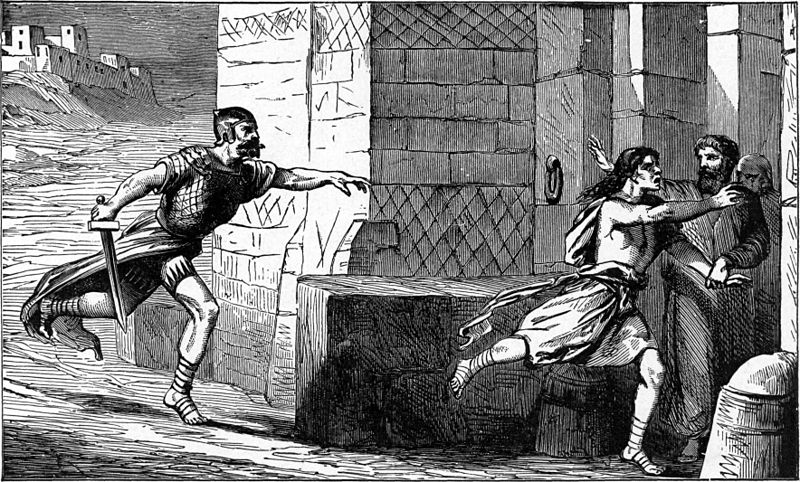
This week’s parsha is Mattot-Masei: Numbers 30:2-36:13
| Mattot (30:2-32:42) – (Tribes): Haftorah: Jeremiah 1:1-2:3 (Ashkenazi); Jeremiah 1:1-2:3 (Sephardi) |
| 30:2-17: Vows and oaths | 31:42-47: The people’s share |
| 31:1-12: The battle against Midian | 31:48-54: The commanders |
| 31:13-20: Moses rebukes the officers | 32:1-5: The request of Reuben and Gad |
| 31:21-24: Laws of koshering utensils | 32:6-15: Moses’ objection |
| 31:25-28: Division of the spoils | 32:16-19: The request is clarified |
| 31:29-35: Kohanim and Levites | 32:20-32: Moses’ condition |
| 31:36-41: The soldiers’ share | 32:33-42: The inheritance of Reuben, Gad, and half of Manasseh |
| Masei (33:1-36:13) – (Journeys): Haftorah: Jeremiah 2:4-28; 3:4 (Ashkenazi); Jeremiah 2:4-28; 4:1-2 (Sephardi) |
| 33:1-49: Summary of the journey | 35:9-15: Cities of refuge for unintentional murder |
| 33:50-56: Occupying the Land | 35:16-21: Intentional murder |
| 34:1-15: The boundaries of Eretz Yisrael | 35:22-34: Unintentional murder |
| 34:16-29: The leadership | 36:1-13: Tribal intermarriage |
| 35:1-8: Cities for the Levites |
D’var Torah: Are We There Yet? The Journey from Egypt to Israel as a Metaphor for Our Lives
Torah Pearls: Parsha Mattot – Masei
This week’s Haftarah is: Jeremiah 2:4-28; 3:4 (Ashkenazi); Jeremiah 2:4-28; 4:1-2 (Sephardi)
Chapter 2: The Children of Israel have committed two grievous sins – turning their backs on God and making gods for themselves. God says that Egypt will betray Israel. He asks why Israel left Him only to put their trust in Egypt.
Chapter 3: He tells the Children of Israel that if only they would confess, He would not hold their sins against them.
